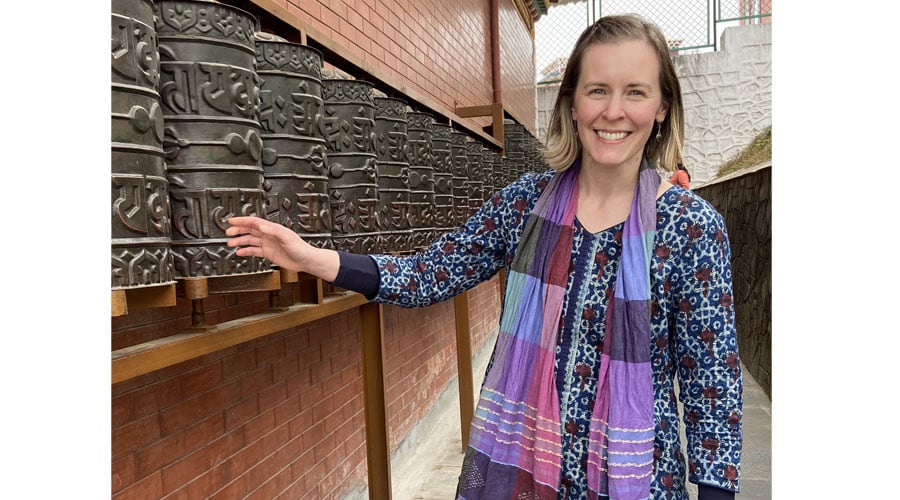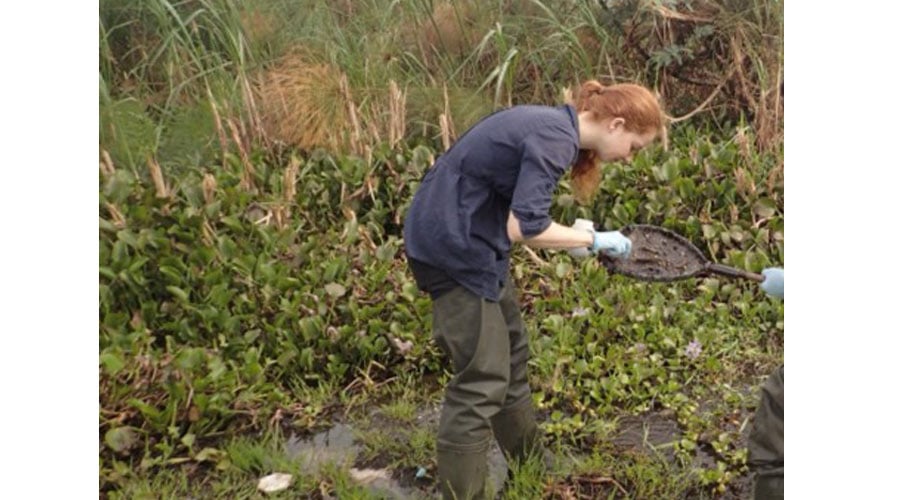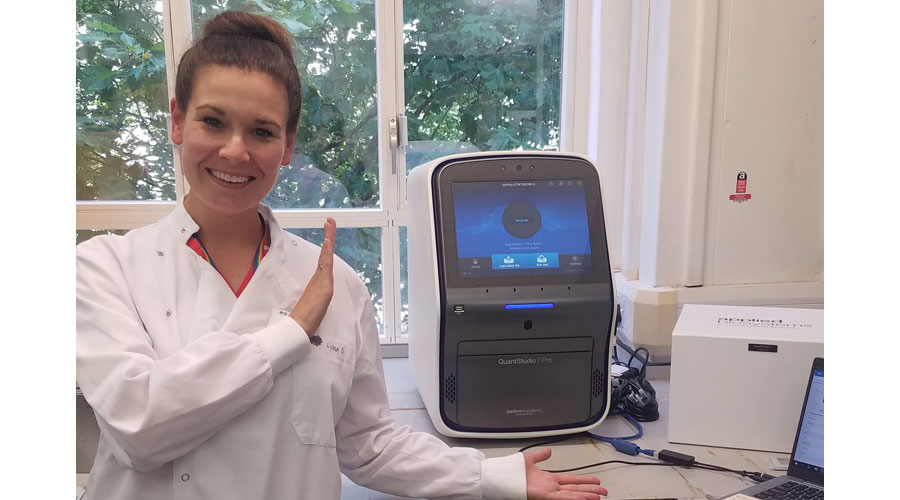To mark the International Day of Women and Girls in Science, we celebrate the innovative research led by emerging women researchers Dr Laura Braun, Dr Jackie Knee and Dr Emma Radovich, supported by Reckitt’s donation to LSHTM to further research on hygiene and health. Their research addresses pressing global health challenges including maternal care, infectious disease control, and climate-related disease transmission, showcasing the vital role of women in advancing scientific discovery and shaping the future of public health.
Research driving real-world impact
Routine urine screening in antenatal care Nepal (Emma Radovich)
Dr Emma Radovich, Research Fellow in the Department of Infectious Disease Epidemiology & International Health, is researching why urine dipstick tests – important for detecting pre-eclampsia, as well as diabetes and urinary tract infections - are often missing in routine antenatal care in Nepal. The research uncovered systemic gaps, such as staffing limitations and infrastructure challenges, that hinder access to this crucial diagnostic tool. Findings from this study aim to improve maternal healthcare services by ensuring more consistent and accessible screening.
Climate change and Schistosomiasis transmission in Madagascar (Laura Braun)
With climate change altering disease patterns, Dr. Laura Braun, Assistant Professor in the Department of Disease Control, is researching how patterns will impact on schistosomiasis—a parasitic disease affecting millions in tropical regions. The next step involves trialling community-led interventions that are both practical and sustainable for long-term disease control.
Children’s exposure to enteric pathogens in Mozambique (Jacqueline Knee)
Understanding how children are exposed to harmful pathogens is vital in preventing diarrhoeal diseases and associated long-term health effects. By leveraging molecular biology tools, Dr. Knee and her team in the Department of Disease control, are identifying key transmission pathways in household environments to inform better hygiene interventions, particularly in vulnerable communities.
The power of support and collaboration
Beyond individual research achievements, these innovative research projects emphasise mentorship, collaboration, and capacity building. By supporting early-career scientists in Nepal and strengthening long-term partnerships with research institutions in Mozambique and Madagascar, the funding has empowered these women researchers to lead, innovate, and expand their impact.
Jacqueline Knee highlighted the impact of this:
"The funding has allowed me to pursue research questions I’m passionate about while building a strong network of collaborators. It has enabled me to explore critical environmental health challenges and foster meaningful partnerships that drive impactful change."
Inspiring the next generation of women in science
The journey of these women in science is a testament to perseverance, passion, curiosity, and the power of community. Emma’s advice to aspiring female scientists is clear.
"Find mentors who uplift you, surround yourself with those who believe in your potential, and embrace the challenges as opportunities for growth".
Laura Braun also shared about her career journey,
"I initially studied environmental engineering, motivated by a desire to solve practical problems. Over time, I transitioned into research to focus on the intersection of human health and the environment. A key moment in this journey was joining the environmental health group at LSHTM, where I started working on a number of large water and sanitation trials."
Laura’s experience highlights that following your passion for solving real-world problems can guide you towards a fulfilling career, even if that path isn’t linear.
Celebrating women in science is not just about recognition; it is about paving the way for more women to contribute to scientific advancements that improve lives worldwide. As we mark this year’s International Day of Women and Girls in Science, we reaffirm our commitment to fostering an inclusive and supportive research environment where women continue to lead transformative change.


